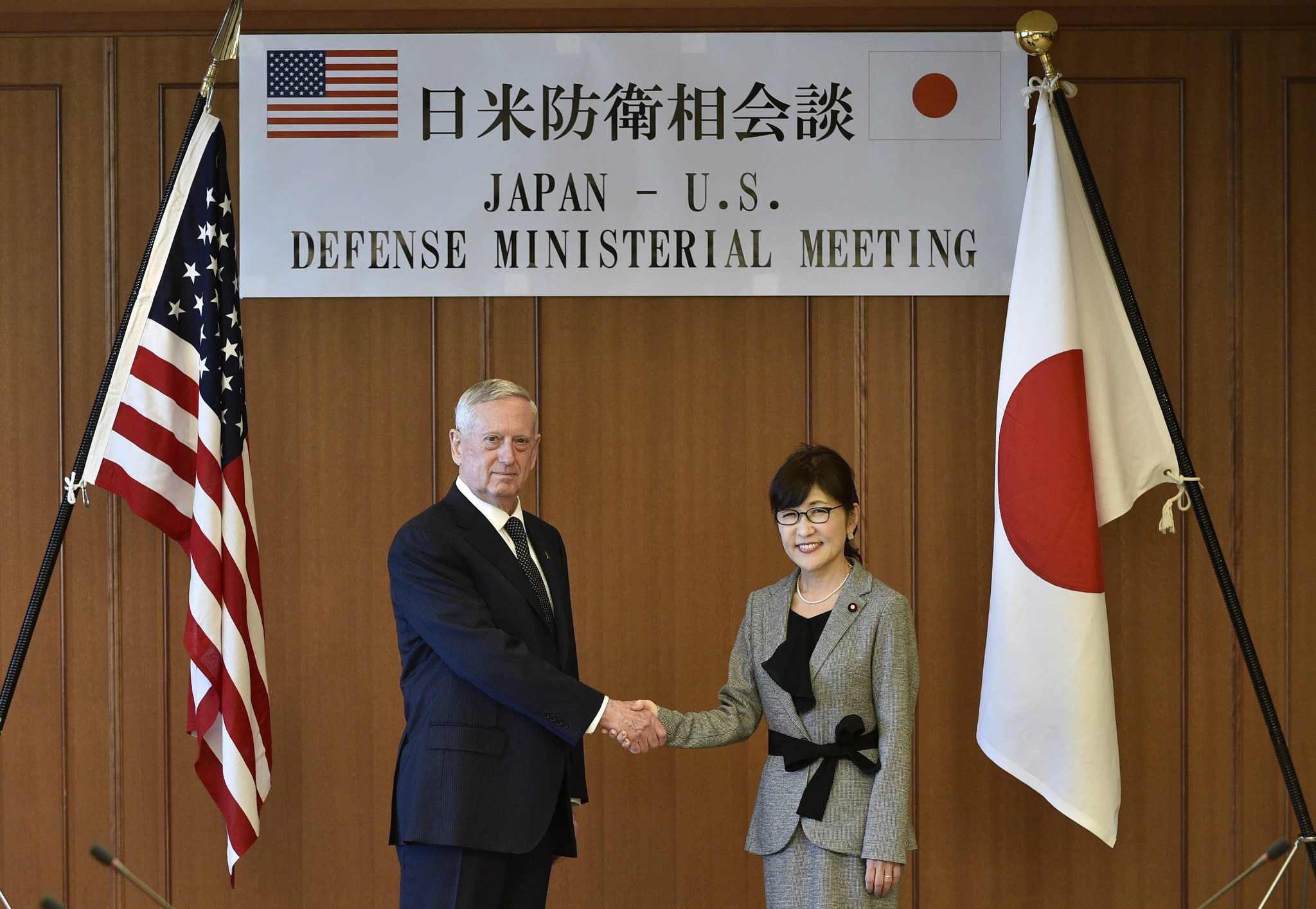
TOKYO, Japan (AFP) — US Defense Secretary James Mattis told his Japanese counterpart on Saturday that their alliance remained a “cornerstone” of regional stability as he wrapped up a visit aimed at reassuring key Asian allies about Washington’s commitment to their security.
Japan and the US have a decades-long security alliance while US-South Korea military ties date back to the 1950-53 Korean War.
But on the campaign trail, US President Donald Trump accused Seoul and Tokyo of not paying their fair share for US troops stationed in their countries, sparking concerns about the future of the security alliances.
Mattis arrived in Japan on Friday from South Korea and his visit to the region marks the first overseas trip by a senior official from the Trump administration.
Mattis, a former Marine general who has served in both Japan and South Korea, made clear in no uncertain terms that the United States was ready to answer any threats the two countries may face.
“We see the alliance between ourselves and Japan as a cornerstone of peace, prosperity and freedom in the Asia-Pacific area,” he said at the start of discussions with Japanese defense minister Tomomi Inada.
“It will continue as strong as ever.”
Earlier, Mattis and Inada shook hands under clear skies and a military band played the two countries’ national anthems.
They are expected to discuss strengthening military cooperation and ways to counter the regional threat posed by North Korea’s nuclear and missile programs.
On Friday, Mattis told Japanese Prime Minister Shinzo Abe, who will hold a summit with Trump next in Washington, that the US would continue to defend Japan.
“We stand firmly, 100 percent, shoulder-to-shoulder with you and the Japanese people.”
And in Seoul on Friday, Mattis had strong words for Pyongyang and warned it against any violent adventurism.
“Any attack on the United States or our allies will be defeated and any use of nuclear weapons would be met with a response that would be effective and overwhelming,” Mattis told reporters ahead of a meeting with his South Korean counterpart.
North Korea carried out two atomic tests and a series of missile launches last year and casts a heavy security shadow over the region.
© 1994-2017 Agence France-Presse








